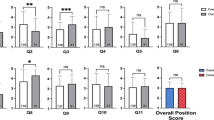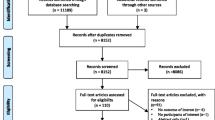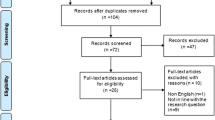Abstract
Objective:To determine the nature, frequency and effects of internal medicine bousestaff and faculty contacts with pharmaceutical representatives (PRs).
Design and setting:The authors surveyed internal medicine faculty at seven midwest teaching hospitals and housestaff from two of the teaching programs. The survey asked about type and frequency of contacts with PRs and behavior that might be related to these contacts. T-tests and logistic regression were used to estimate the relationship between reported physician contacts and behavioral changes.
Participants:Two hundred forty faculty (78%) and 131 house officers (75%) responded to the survey.
Results:Faculty and housestaff averaged 1.5 brief contacts per month with PRs. Housestaff averaged more than one meal/month at pharmaceutical company expense. Twenty-five percent of faculty and 32% of residents reported changing their practices at least once based on PR contact. Independent predictors of faculty change in practice were brief or extended conversations and free meals. Predictors of faculty requests for formulary addition were brief conversations and receipt of honoraria or research support. Only brief conversations independently predicted housestaff changes in practice.
Conclusion:Academic housestaff and faculty have frequent PR contact; such contact is related to changes in behavior. The potential for influence of PRs in academic medical centers should be recognized, and their activities should be evaluated accordingly.
Similar content being viewed by others
References
Young QD. Structural reforms in health care delivery. Arch Intern Med. 1975;135:904–9.
Miller RR. Prescribing habits of physicians: a review of studies on prescribing of drugs. Drug Intell Clin Pharm. 1974;8:81–91.
Personal communication. Scott-Levin Associates, Inc. Newtowne, PA.
Lexchin, J. Pharmaceutical promotion in Canada. Int J Health Serv. 1987;17:77–88.
Worthen DB. Prescribing influences: an overview. Br J Med. Educ. 1973;7:109–17.
Herman CM, Rodowskas CA. Communicating drug information to physicians. J Med Educ. 1976;51:189–96.
Eaton G, Parish P. Sources of drug information used by general practitioners. Prescribing in General Practice. J R Coll Gen. Pract. 1976;26(suppl 1):58–64.
Stross JK. Information sources and clinical decisions. J Gen Intern Med. 1987;2:155–9.
Avorn J, Cehn M, Hartley R. Scientific versus commercial sources of influences on the prescribing behavior of physicians. Am J Med. 1982;73:4–8.
Hemminki E, Pesonen T. An inquiry into associations between leading physicians and the drug industry in Finland. Soc Sci Med. 1977;11:501–6.
Stross JK, Hiss RG, Watts CM, Davis WK, MacDonald R. Continuing education in pulmonary disease for primary physicians. Am Rev Resp Dis. 1983;127:739–46.
Kunin CM. Clinical investigators and the pharmaceutical industry. Ann Intern Med. 1978;89:842–5.
Davidson RA. Source of funding and outcome of clinical trials. J Gen Intern Med. 1986;1:155–8.
Soffer A. Hazards in publication of proceedings. Arch Intern Med. 1982;142:20–4.
Author information
Authors and Affiliations
Additional information
Dr. Lurie is a Henry J. Kaiser Family Foundation Faculty Scholar in General Internal Medicine. This project was supported in part by the Ramsey Foundation.
Rights and permissions
About this article
Cite this article
Lurie, N., Rich, E.C., Simpson, D.E. et al. Pharmaceutical representatives in academic medical centers. J Gen Intern Med 5, 240–243 (1990). https://doi.org/10.1007/BF02600542
Issue Date:
DOI: https://doi.org/10.1007/BF02600542




